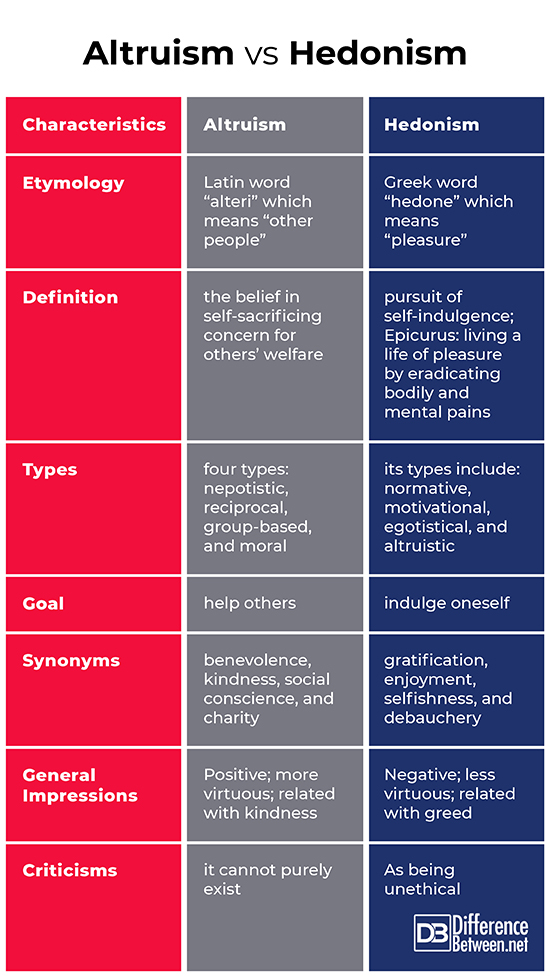


The Greek word eudemonia combines the words eu, meaning good, and daemon, meaning lesser god, guiding spirit, or tutelary deity (Harper, n.d.b).

But the matter is more complex than that. hedonic wellbeing usually contrasts self-fulfillment with maximizing pleasure value- and virtue-oriented living with prioritizing enjoyable experiences and designing for long-term flourishing vs. It also tends to be associated with sensual desire fulfillment, although it can take other forms, too. It is a subjective form of wellbeing, measured by cognitive evaluations of life satisfaction and by the predominance of negative or positive affect. In other words, hedonic happiness is about maximizing pleasure and minimizing displeasure. Hedonic wellbeing, by contrast, is usually discussed in terms of experiences, a focus on desire fulfillment and pleasure seeking, and the presence of positive affects and the absence of negative ones. Hedonism comes from the Greek word hedone, which means pleasure (Harper, n.d.a).

We can broadly define eudaimonic wellbeing as a function or orientation toward “growth, authenticity, meaning and excellence” (Huta & Waterman 2014, p. There is no universal agreement on the precise meanings of the terms eudaimonic and hedonic wellbeing. 2 Scales & Questionnaires to Measure Wellbeing.3 Activities for Your Coaching Sessions.Psychology Theories Behind the Concepts.10 Real-Life (and a Few Fictional) Examples.What Are Eudaimonic & Hedonic Wellbeing?.These science-based exercises explore fundamental aspects of positive psychology, including strengths, values, and self-compassion, and will give you the tools to enhance the wellbeing of your clients, students, or employees. Let’s explore their research and see their verdict on how to reach happiness.īefore you continue, we thought you might like to download our three Positive Psychology Exercises for free. Yet many other philosophers, too, as well as a growing cohort of modern happiness researchers, have engaged with the question of what is worth pursuing in life - and why. The philosopher Aristotle (2009) explored eudemonia in the 4th century BCE in his Nicomachean Ethics. More specifically, they analyzed the distinction between eudaimonic versus hedonistic wellbeing. Many researchers have returned to the wisdom of the ancient Greeks to illuminate the nature and core ingredients of a good life. There has been a dramatic rise in research on what constitutes a “good life” and how we can achieve it. You are not alone when grappling with this question. That begs the question: What is a life well lived? Have you ever toyed with the idea of writing your own obituary?Īs you are now, young or old, would you say you enjoyed a life well lived?


 0 kommentar(er)
0 kommentar(er)
